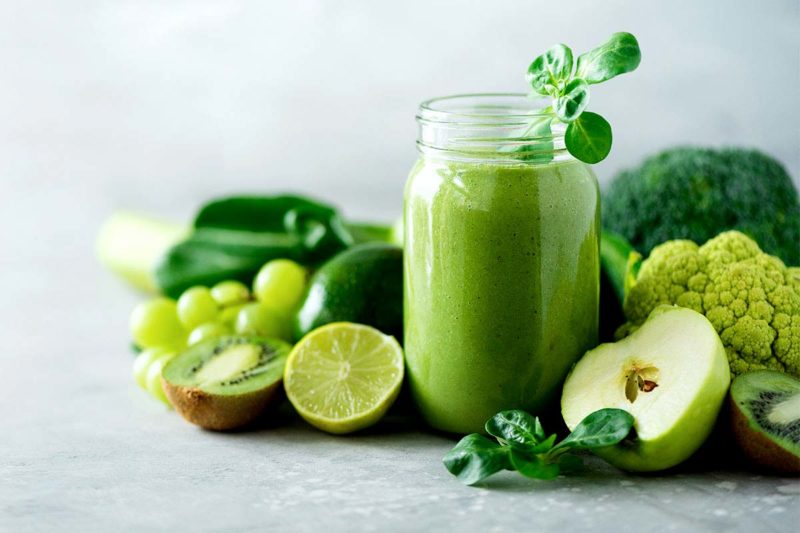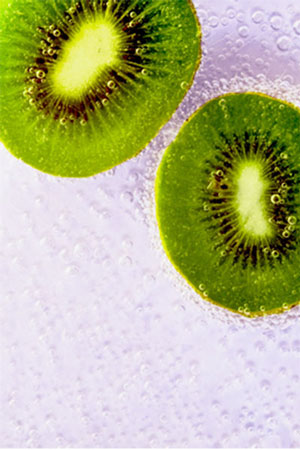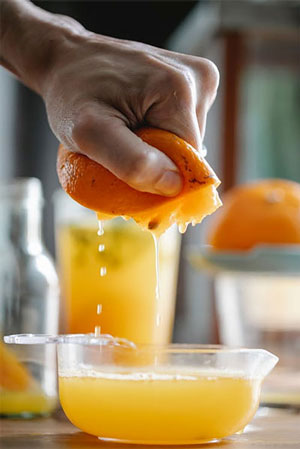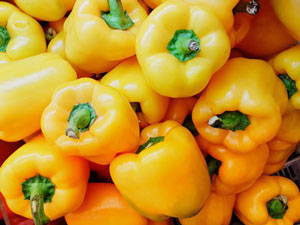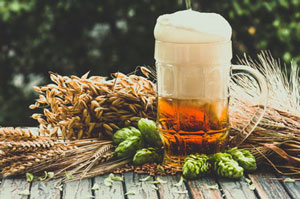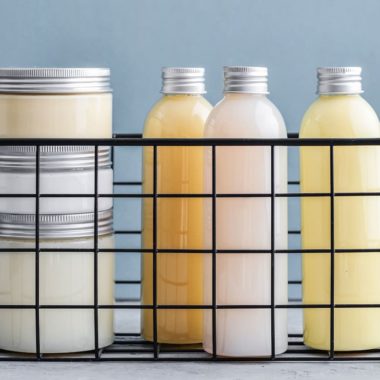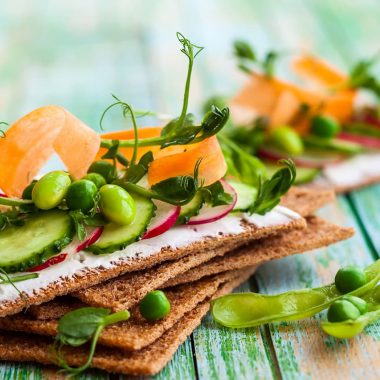Quite some assertions are made about foodstuffs! Either crediting some with sometimes magical virtues or demonising others. How about we review a few preconceived ideas and sort the truths from the falsehoods when it comes to these 21 healthy eating statements that niggle you?
Carbohydrates promote weight gain, so you should stop eating them. FALSE.
Comme pour tous les aliments, c’est la variété qui compte. Les féculents sont indispensables, As with all foodstuffs, variety is important. Carbohydrates are essential, but it all hinges on what you serve them with! Steamed potatoes with fresh herbs and a knob of butter are lighter and easier to digest than oily chips. Don’t forget to always serve carbohydrates with raw vegetables or a small green salad for the alkalinising factor that will rebalance the meal. Carbohydrates supply sugars, which are real fuel for the body, needed by the muscles and also the brain and heart. Your daily food intake can be around 50% carbohydrates. When cooking pasta, be sure to do so al dente. This is because the sugars in overcooked pasta are metabolised less efficiently.
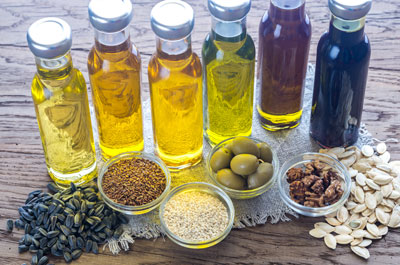
Huile You should use olive oil and no other oils. FALSE.
While it’s excellent due to its omega 9 and 6 content, switching between a variety of oils is recommended: walnut, linseed, rapeseed, cameline and grape seed. Avoid coconut oil, which is too high in saturated fatty acids.
Oil is lower in calories than butter. FALSE.
No, it absolutely is not. Oil is 100% fat, whereas butter is only 80% fat. However, we need good oils (olive, walnut, hazelnut, rapeseed and cameline) as omega 3s are essential to proper function of the brain and all the organs. Fat is a real energy storage unit, and makes up cell membranes, which makes it essential.
Eggs are too high in cholesterol, so you should stop eating them. FALSE.
Le cholestérol alimentaire n’est presque pas concerné par le cholestérol sanguin, qui lui, est généré par le foie. Parce qu’ils sont riches en vitamine B, manger régulièrement des Cholesterol in the diet has almost nothing to do with cholesterol in the blood, which is produced by the liver. Since eggs are high in vitamin B, eating them regularly reduces the risk of developing cardiovascular disorders by 25%. This is because the cholesterol contained in eggs saves the body from having to produce it itself. Moreover, eggs are a good source of protein.
Ewe’s milk doesn’t contain lactose. FALSE.
It contains around 50 grams per litre, compared to 47 for cow’s milk. It is also twice as high in fat. To be avoided if you are lactose intolerant.
Honey is something to be consumed liberally. FALSE.
Honey is around 80% sugar, even though it contains small amounts of minerals and vitamins.
Protein should be part of every meal. FALSE.

Inutile de consommer viande ou poisson tous les jours, et encore moins midi et soir. Troquez-les contre des protéines végétales de façon régulière. Mettez au menu légumes secs, légumineuses, céréales complètes en alternance avec du poisson et de la viande. Mais, sauf si vous êtes végétariens ou vegans, n’éliminez pas la viande et le poisson qui contiennent tous des acides aminés essentiels, contrairement aux légumineuses. Les muscles, le système immunitaire, en ont besoin. En alternant pIt’s pointless to eat meat or fish every day, let alone for both lunch and dinner. Switch them out for plant-based protein on a regular basis. Alternate between serving dried legumes, pulses and wholegrain cereals, fish and meat. But unless you’re vegetarian or vegan, don’t cut out meat and fish, both of which contain essential amino acids, unlike pulses. The muscles and the immune system need them. By alternating between animal and vegetable protein, you’ll help reduce pollution. Go and watch the film Animal by Cyril Dion and prepare to be won over! #animal.lefilm
Sugar promotes weight gain. TRUE.
Yes, we (almost) all like sugar, which in our subconscious is bound up with sweetness and reward. So sugar in homemade fare (pastries, pancakes etc.) is acceptable, but added sugar in beverages, alcohol, confectionery and mass-produced pastries is not. This glucose intake supplies energy to the organs and brain, but must be in small amounts (the sugar in homemade fare and the naturally-occurring sugars in fruit are enough). Favour brown sugar, which is higher in magnesium, potassium and phosphorous, but it’s pointless to eat more of it just because it’s better for you.
Skimmed milk contains less calcium than whole milk. FALSE.
While skimmed milk has the fat taken out, it’s not the case for the other nutrients in milk. However, calcium is also found in a great many waters, sardines, fresh parsley, cheese, cress and seaweed. Be aware that “plant milks” (almond, oat, soy, rice, coconut, etc.) don’t have the same nutritional value as cow’s milk – nowhere near it! They are naturally low in protein (with the exception of soy drinks), generally packed with simple sugars or even oil, contain no calcium and very small amounts of vitamins.
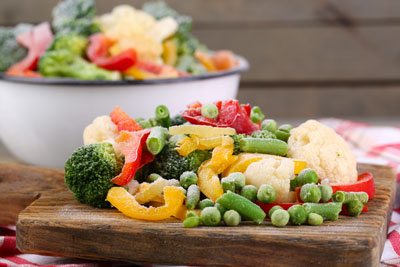
Frozen vegetables are less nutritious than fresh ones. FALSE
Far from it – often, they are higher in vitamins even than some fresh vegetables that have been poorly stored, whether in the supply chain or once in your home. Vitamins are fragile, and easily destroyed by light, heat and exposure to the air. Vegetables oxidise and nutrients get depleted. When washed and then frozen very promptly after being harvested, vegetables retain all of their nutritional value.
Whole or juiced fruit comes down to the same thing. FALSE
A little thing sets them apart from one another: fibre, which makes all the difference. The fibre in whole pieces of fruit makes it possible for carbohydrates to be assimilated efficiently. As for juices, they inject a sugar shot, which goes straight into the bloodstream and sends blood sugar levels up. As for vitamin content, fresh juices contain as much as whole pieces of fruit, but they must be drunk soon after the juicing process. To be more easily digested, pieces of fruit and fruit juices should be consumed at the beginning of a meal rather than as the end. When they sit at the top of the stomach, they tend to ferment and slow down digestion.
The orange is the vitamin C champion. FALSE
A kiwi fruit contains twice as much, and a yellow pepper overtakes them both with almost twice the amount in a kiwi fruit, and therefore four times the amount in an orange.
Vitamin C causes sleeplessness. FALSE
While vitamin C does affect dopamine, which itself affects wakefulness, conversely it does not have any bearing on the sleep cycle. This can get established naturally, in parallel and independently of anything else. So a glass of fruit juice drunk in the evening at the end of a meal or outside of mealtimes may be hard to digest and therefore cause sleeplessness, but it will be unrelated to the vitamin C.
Spinach is the iron champion. FALSE
While Popeye claimed to get his super strength from spinach, it is about ten times lower in iron than was long supposed. Lentils, parsley, some waters, offal, black pudding, dandelion, purslane, white beans and kidney beans contain more iron. Women need around 24 mg per day, and men half as much.Spinach also has other benefits. High in vitamins A, B9, C and K and in antioxidants, it’s also very low calorie. It’s one of the most beneficial detox vegetables, to be eaten raw, as a salad leaf, cooked or juiced.
You should skip meals to lose weight. FALSE
There’s no benefit to skipping meals, unless you’re too ill to eat anything at all. And even then, it’s more necessary than ever to hydrate yourself or rehydrate yourself, if you have gastroenteritis, for example. Digestive herbal infusions along with a real vegetable and poultry broth give the body all it needs in case of an upset stomach. Skipping meals regularly prompts the body to redress the balance between energy intake and energy expended, and to do so it will draw on its reserves. But since the body is smart and has a memory, once alerted by repeated deprivation it will store up more and more to build up reserves as it anticipates the next rounds of deprivation. So instead, eat a balanced diet, cut out added sugar, drink a litre of water and get in at least 30 minutes’ exercise per day. You will then reach what for you is a balanced weight, without suffering any deficiencies.
It’s better to go gluten free. TRUE and FALSE
For those who are gluten intolerant, the gluten-free life is a rebirth. Their digestive issues disappear and their diet is more of a source of energy and enjoyment. For those who don’t notice any difference after having cut gluten out of their diet, there’s no reason to do so. However, more and more people who are not gluten intolerant who experiment with cutting it out say that they feel less weighed down after meals, and especially less tired. It must be due to their digestion requiring less energy.
Beer is perfect for young mums. TRUE and FALSE.
TRUE! Because it promotes lactogenesis due to barley malt, which stimulates the secretion of prolactin (which is the reason why it was long recommended for wetnurses to drink it). But false, due to the alcohol content, which is off limits when breastfeeding. But alcohol-free beer and even brewer’s yeast have the same effect on lactation. Some breweries produced low-alcohol beer especially for breastfeeding mothers!
Ginger is an aphrodisiac. TRUE and FALSE
Its nature as a stimulant is behind its reputation of being an aphrodisiac. In fact, more than anything it’s an excellent “natural medicine”. For nausea, headaches and colds it’s advisable to consume it fresh, infused with a teaspoonful of honey and a squirt of lemon to fight off winter bugs better and support digestion. High in antioxidants, ginger is also a long-term helping hand in easing rheumatism and relieving all kinds of inflammatory conditions.
Carrots: give you glowing skin. TRUE
It’s the beta-carotene champion. This plant-based pigment is behind orange and yellow hues. Very high in vitamin A, it boosts the genesis of melanin, that barrier between the sun’s rays and the skin. Beta-carotene is responsible for tanning (which, in case you didn’t know, is none other than the skin’s response to attack…). So load up on carrots if you want to ramp up your skin’s glow. But don’t take excessive doses of dietary supplements that are high in beta-carotene, or you might find yourself with a complexion that’s a bit too… carrot-coloured.
Apples are a real medicinal foodstuff. TRUE
Apples are very high in fibre and antioxidants, and guard against the development of a variety of ailments, particularly those of an inflammatory or cardiovascular nature, including cell ageing.

Fish improves memory. TRUE
Even if it’s not directly a stimulant when it comes to memory or cognitive function, fish is high in phosphorous (eggs, cheese and meat contain it too). In addition, fatty fish is very high in omega 3, a fatty acid that’s essential to cell protection and particularly to proper brain function. It’s recommended to eat fish two to three times a week because of its role in protecting the nervous system and cognitive function, through proper brain function.


